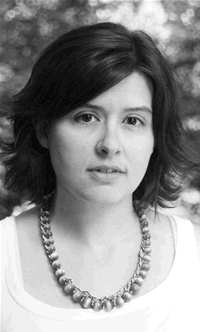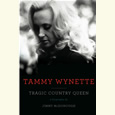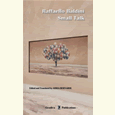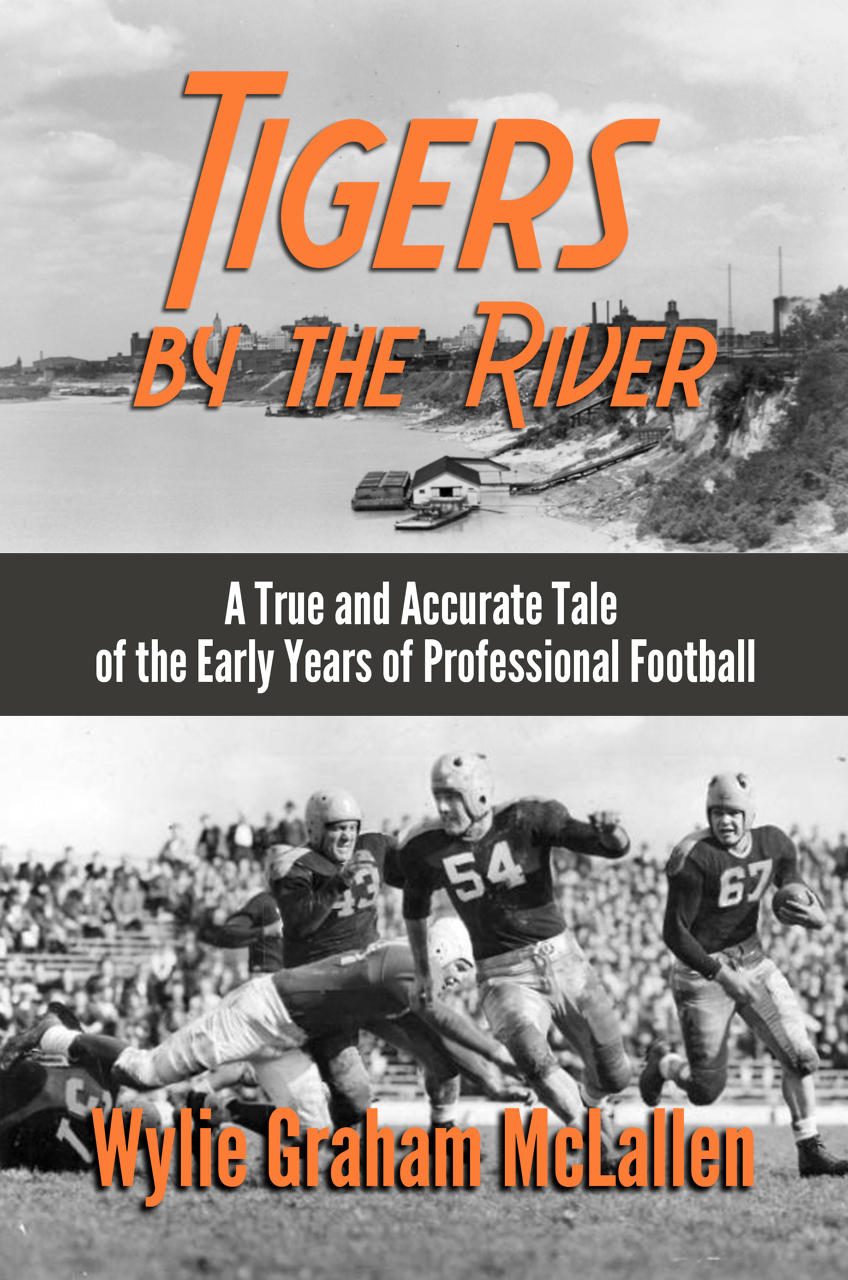Addressing the Anxieties of Art-Making
Novelist Leah Stewart talks with Chapter 16 about her literary roots in Tennessee
In her fourth novel, The History of Us, Leah Stewart tells the story of a family ripped asunder when a long-kept secret is revealed. An “intimate exploration of a family in crisis and the different ways in which people cope with grief,” according to Publishers Weekly, the novel also looks thoughtfully at the way place shapes people. Stewart, now tenured at the University of Cincinnati, grew up in a military family. “[F]or the first time I feel permanent,” she once told an interviewer. “That feeling is a lot of what gave rise to this novel—thinking I might stay here made me very interested in other people’s relationship to the place, so I began to pay a lot of attention to that.”
 Stewart also has strong ties to Tennessee: a Vanderbilt University graduate who served as editor of the school newspaper, The Vanderbilt Hustler, Stewart interned in Nashville at The Tennessean and in Memphis at the Commercial Appeal. For a decade she was on the staff of the Sewanee Writers’ Conference. She has been a visiting professor at Vanderbilt and the University of the South, and still enjoys returning to Sewanee to write. In fact, that’s where she was when Chapter 16 recently caught up with her by email.
Stewart also has strong ties to Tennessee: a Vanderbilt University graduate who served as editor of the school newspaper, The Vanderbilt Hustler, Stewart interned in Nashville at The Tennessean and in Memphis at the Commercial Appeal. For a decade she was on the staff of the Sewanee Writers’ Conference. She has been a visiting professor at Vanderbilt and the University of the South, and still enjoys returning to Sewanee to write. In fact, that’s where she was when Chapter 16 recently caught up with her by email.
Chapter 16: Writers often say that each book is an exercise in learning to write all over again because every book’s demands are particular. Is this true for you?
Stewart: Yes and no. Each book is hard to write: new characters, new plots, new frustrations. And each poses a different set of technical challenges. But I think (I hope) I build on what I learned the last time, rather than starting completely over. So, for instance, my first three novels are all in first person, and with The History of Us I decided to write in third, with shifting points of view. Learning how to do that was one of the primary challenges of that book. In my upcoming book, I shift between first and third, and in the one I’m working on now I’m playing with the omniscient. So I think I’ve grown more versatile with point of view. At least I feel much more comfortable using the third now than I did when I started The History of Us.
Chapter 16: Do you have an ideal reader in mind when you’re writing?
Stewart: It’s not so much about an ideal reader as an ideal book. In other words, I’m trying to emulate what I most admire—books that offer both the pleasures of compelling narrative and the pleasures of complicated characters and well-written sentences.
Chapter 16: You’ve said that you look to different books for guidance and inspiration with each new project you work on. What are some of the titles that have been instrumental in your latest project?
Stewart: For my upcoming book, I kept looking at Margaret Atwood, especially Alias, Grace. I was also reading Charles Baxter’s essay collection, Burning Down the House, and his thinking about how fiction works influenced me to try certain moves. (I ended up using quotes from those two books as epigraphs.) The one I’m working on now has been influenced by some of the eighteenth-century fiction I’ve been reading to fill in a gap in my education—Tom Jones, Tristam Shandy. The playful omniscient voice of those struck me as really fun, so I’m experimenting with my own version.
Chapter 16: I really loved your third novel, Husband and Wife. Sarah Price’s voice, the conflict, all of it. As a young mother who felt a bit estranged from her writing life at the time, I hung on every word. How much of your own anxieties about art-making and mothering and the challenges of balancing both responsibilities did you call on in creating Sarah?
Stewart: Quite a bit! And it’s something I talked about a lot—and still talk about—with friends who are trying to do the same thing, or in certain cases decided to set the art-making aside. I put Sarah in that position in part to explore the opposite choice from the one I made.
Chapter 16: As your children age and your writing life continues its course, how have your thoughts on being a Mother Who Writes evolved?
Stewart: My kids are seven and ten now, so it’s possible to say to them, “I need to finish this paragraph and then I’ll come find your pajamas,” in a way it wasn’t when they were one and two and three. So it’s gotten easier. Right now they really want to be in my books—I’ve stolen a few lines from them and given them to child characters, and they love that. But recently it struck me I’ll have to resist the urge to do that as they get older. I’m guessing they won’t like it as much.
Chapter 16: You won an NEA fellowship in 2010. Did that honor change anything for you?
 Stewart: It was really affirming. Ideally we write for the joy of writing, but you can’t always silence those self-critical voices, not to mention all the critical voices on the Internet. I think any artist probably benefits from an occasional boost to the confidence like that fellowship was for me.
Stewart: It was really affirming. Ideally we write for the joy of writing, but you can’t always silence those self-critical voices, not to mention all the critical voices on the Internet. I think any artist probably benefits from an occasional boost to the confidence like that fellowship was for me.
Chapter 16: You also joined Twitter that year. How do you feel about being an active voice on Twitter, and how useful (or not) it has been for you?
Stewart: I’ve enjoyed the interaction with other people in the literary world I wouldn’t otherwise know. Mostly what I like to do on Twitter is make jokes, and when people retweet them I’m pleased that someone else found them funny.
Chapter 16: I understand that you enjoy coming down to Tennessee—to Sewanee, in particular—to write when you can. Is there something about this setting that particularly nourishes your writing life?
Stewart: Oh yes. For one, I have many fond memories of Sewanee, from the ten years I went there to work at the Writers’ Conference and the year I spent there as a visiting writer. I think of it as a very literary place, which is probably psychologically useful. I’ve now gone twice to the newish writers’ colony there, Rivendell, and that’s just a fantastic space to work: quiet, great views, a bench where Walker Percy used to sit. What I said above about it being easier to write now that the kids are older is true, but it’s also true that mine is a noisy and active household, and it’s not always easy to find mental space. If I have two hours to write I’m usually focused on knocking out a scene rather than thinking through an entire narrative arc. So going for a two-hour hike in the woods in Sewanee and thinking about a project without interruption is bliss.
Chapter 16: One more question about your work in progress: does place figure into the new novel as significantly as it did in The History of Us?
Stewart: Yes! In fact, it’s set in Sewanee, and the isolation and quiet and out-of-time atmosphere are very important to the novel. I was revising that book the first time I went to Rivendell, and I’d forgotten how intense the fog can be in the colder months until I was there. So then I had to write a fog scene. I walked around in the fog, thinking about how to describe it, and then went inside and tried.

Susannah Felts is a writer, editor, and educator in Nashville, as well as co-founder of The Porch Writers’ Collective, a nonprofit literary center. She is the author of This Will Go Down On Your Permanent Record, a novel, and numerous journal and magazine articles.





